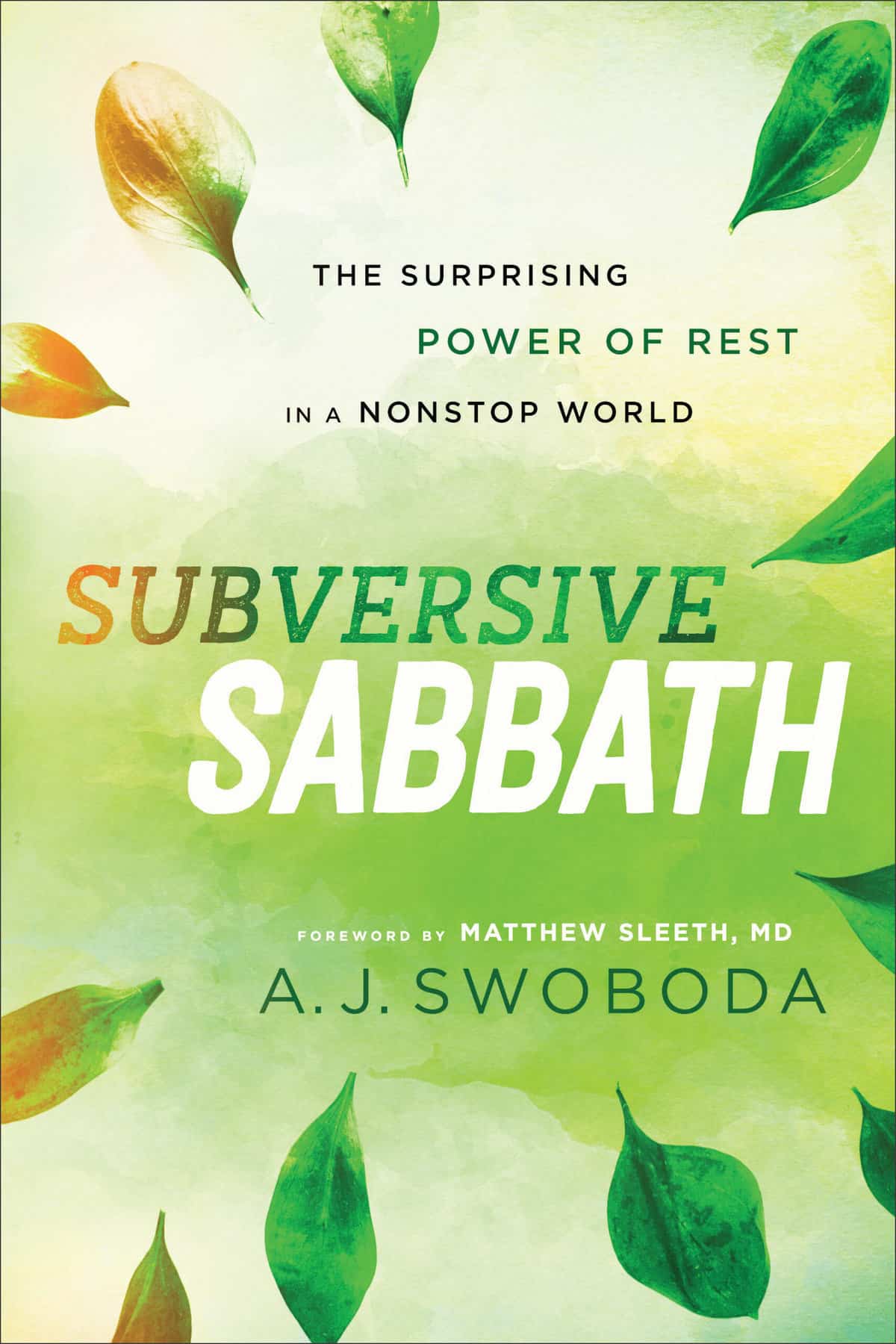
Editor’s Note: For the month of August, CSA will be taking sabbath hours for half the day every Friday. As we strive to incorporate the rhythms of rest into our work, we’ll be making space for sabbath here on our website as well.
Won’t you join us? Every Thursday, we will re-run an article on sabbath from our archives. On Fridays, we will leave a sabbath space for rest.
If you find this helpful or meaningful in your own quest for sabbath, we’d love to hear from you!
To begin, take a moment and recall the fourth commandment: “Remember the Sabbath…On it you shall not do any work . . . nor your animals” (Exodus 20:8, 10). The original Sabbath command as found in the Mosaic covenant immediately connects the dots between our rest and the rest of the animals that we depend on and are responsible to care for. The Bible’s perspective on the Sabbath reveals that it is a day of rest extended to humans and nonhuman creatures of God’s creation.
A note about our theology: the critter kingdom sadly receives sparse, if any, attention in the contemporary church’s theology, thinking, practice, or preaching. I have never heard nor preached a sermon on animal welfare. The argument is often made that in a world of sin, disease, unrest, and societal breakdown, why should the critters even matter all that much?
As a Bible believing, Jesus-is-the-only-way-to-God, theologically traditional follower of Christ, I have encountered little from my tribe regarding our responsibility as Christians to care for the critters of the world, largely because we believe there are more important things to be doing. Moreover, it seems almost assumed that animal welfare is a distraction from the real issues of Christian living: evangelism, preaching, repentance, and right doctrine.
But this attitude does not reflect the Bible’s attitude. “The righteous,” Proverbs 12:10 tells us, “care for the needs of their animals.” My faith—our faith—should reach so far as to change the way that we treat the animals God has made. But in the tribal church of our time, it is often assumed that progressive and conservative Christians have different interests: one cares for animals, and one does not, at least not as a point of doctrine. It is assumed that the work of evangelism and preaching and doctrine are the things that conservative Christians care deeply about and that issues of justice and activism and politics are the issues with which liberals are concerned.
In the tribal church of our time, it is often assumed that progressive and conservative Christians have different interests: one cares for animals, and one does not.
But why should conservatives not do justice? Why should liberals not do evangelism? Justice and evangelism cannot be done without the other. The gospel is hypocritical without the social gospel, and the social gospel hollow without the gospel. But since the early twentieth century, this bifurcated logic has set the agenda for large parts of the church and has caused division, strife, and misunderstanding. Is one called to preach the gospel and another to do the gospel?
I remember reading a story told by Ronald Sider, founder of Christians for Social Action, that illustrates this very sentiment of some doing and others preaching the gospel. In 1979, Sider traveled abroad and spent a couple of weeks lecturing in South Africa during apartheid. During his time there, Sider met a young man he calls “James.”
James did not identify as a Christian. Rather, he identified as a Jewish student who had traveled to hear Sider teach on Jesus’s commitment and love for the poor, as well as God’s heart for those trapped and oppressed under apartheid. One evening, James and Ron sat down and had a three-hour conversation. James expressed how it had been personally difficult to labor for social justice on behalf of those who were being oppressed by apartheid.
“Ron,” James said, “I’m burned out.” Sider listened as James explained how his activism efforts were nearly killing him. He sensed the young man’s consternation and shared the good news of Jesus with him in hopes that it would meet him in his present need. During the interchange, the young Jewish student said something to Ron that stuck with him. He said, “I don’t want to be like these white Christians here. They sing about the love of Jesus and the joy of heaven, but they don’t care about justice in South Africa. If I become a Christian, will I have to give up the struggle?”
“I don’t want to be like white Christians. They sing about the love of Jesus and the joy of heaven, but they don’t care about justice. If I become a Christian, will I have to give up the struggle?”
Indeed, the work of justice was part of what Jesus asked this young man to do. After Ron affirmed to him the call of God to fight for the freedom of those suffering under apartheid, James came to faith in Christ.
James’s words exemplify the lamentable separation in our understanding of what a Christian is to do: that the conservatives sing about Jesus and heaven while the liberals do the work down here. But can the two really be separated?
“It is my own conviction that the church,” writes Nicholas Wolterstorff, “and humanity at large, neglects inwardness at its own peril. It seems to me that amidst its intense activism, the Western world is starved for contemplation.” Our call, of course, as committed followers of Jesus Christ, is to do activism and prayer and contemplation. Why should I not sing of Jesus and of the joys of heaven while standing up for the poor and the oppressed? Why should those two things not happen together?
What is separating these two parts with the same aim—namely, to serve Christ and the world? I see a generation of young Christians who are tired of such a dichotomy. I can speak for myself: I want to believe in Jesus, believe in the Bible, and preach the good news all the while submitting my life to justice, mercy, and life for all living beings.
Ron Sider calls the form of Christianity in which some preach Jesus and some live out the life of Jesus a “lopsided Christianity.” Doing justice is, indeed, the thing that makes our evangelism come to life.
I am not convinced that one can believe in the gospel and not do justice in the world. Any attempt to translate our otherworldliness into irresponsibility is catastrophic. Jesus wants heaven to come to earth. God’s justice matters. I take the words of Jesus literally. And by reading them literally, I literally am compelled to do them. Love the poor. Pray for the enemy. Face all my addictions. Forgive. Speak truth. Be sexually pure. Repent. Embody generosity. And care for the animals well.
I have no permission to select which words of Jesus I must obey and which to drop by the wayside. I am bound to all of Jesus’s words. The gospel—the good news that Jesus lived, died, and was resurrected to save humanity from its sins—very well better change the ethical structures of our lives.
What does the gospel have to say about genetically modified crops? Refugees? Bioethics? Sexuality? Money and economics? Politics? Even caring for God’s critters?
If nothing is exempt from God’s purview, then neither are animals. And that brings us to another question: What does the message of the Sabbath have to do with the welfare of animals? These questions may seem like they lie outside the scope of the gospel, but no part of creation is outside the breadth of what the gospel has to say, because there is nothing outside the scope of God’s concern. God desires for life to flourish.
Dr. A. J. Swoboda is a professor, author, and pastor of Theophilus in urban Portland, Oregon. He is the lead mentor of a Doctor of Ministry program on the Holy Spirit and Leadership at Fuller Seminary, and the director of Blessed Earth Northwest, an organization focused on creation care issues and Sabbath in the Pacific Northwest. A.J. serves as the executive director of the Seminary Stewardship Alliance, and previously served as a campus pastor at the University of Oregon. A member of the American Academy of Religion and the Society for Pentecostal Studies, A.J. is curator of Green Jesus and author of The Dusty Ones, Tongues and Trees: Toward a Pentecostal Ecological Theology, Introducing Evangelical Ecotheology, and Subversive Sabbath, from which this excerpt is taken. Used by permission of Brazos Press.



One Response